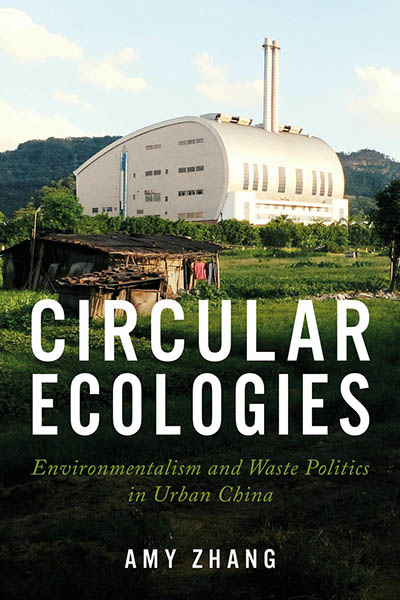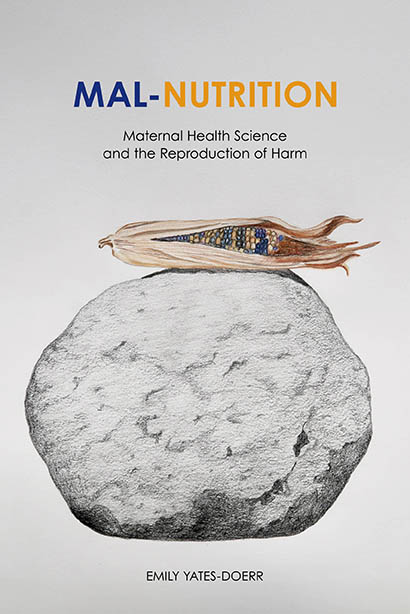The Diana Forsythe Prize was created in 1998 to celebrate the best book or series of published articles in the spirit of Diana Forsythe’s feminist anthropological research on work, science, or technology, including biomedicine. The prize is awarded annually at the AAA meeting by a committee consisting of one representative from the Society for the Anthropology of Work (SAW) and two from CASTAC. It is supported by the General Anthropology Division (GAD) and Bern Shen.
2025 Call for Nominations for the Diana Forsythe Prize
Please spread the word far and wide that the Diana Forsythe Prize committee is now accepting nominations for the Diana Forsythe Prize, due no later than June 1, 2025 (early nominations are appreciated). Self-nominations are welcomed.
Submission Requirements
- To be eligible, books (or article series) must have been published in the last five years (copyright of 2020 or later).
- Formal letter of nomination outlining how the book (or article series) exemplifies the spirit of Diana Forsythe’s feminist anthropological research on work, science, or technology, including biomedicine. (Self-nominations are welcomed.)
- Three physical copies of the book (or article series) must be mailed to the selection committee members.
Nomination Procedure
Note: This nomination procedure is required to be considered. Publishers, formal nomination letters are required for each book nominated.
- Complete the online submission form and upload the formal letter of nomination to the form by June 1, 2025 (11:59 PM CDT).
- Once the nomination has been submitted and verified as meeting minimum requirements, the publisher/nominee will be provided with the correct addresses to send copies of the book (or article series) to each committee member within 2-3 business days.
- Mail one copy of the book (or article series) to each committee member, postmarked by June 10, 2025 or immediately upon receipt of addresses.
2025 Diana Forsythe Prize Winners
Winner: Emily Yates-Doerr, Mal-Nutrition: Maternal Health Science and the Reproduction of Harm (2025, University of California Press)

 This beautifully written book vividly shows how ideas of health and experiences of harm become intertwined in the lives of indigenous Guatemalans in the name of maternal and infant health. The book focuses on public health interventions aligned with fetal and infant development in the so-called “first 1000 days of life.” Because life here is imagined as beginning at conception, first 1000 days interventions are primarily materialized as a problem of maternal nutrition. Because they identify malnutrition as an impediment to development—imagined as both bodily and economic—they are a critical site through which the violence of interventionist development projects manifests. Yates-Doerr shows how the lives, socialities, food knowledges, and agrarian practices of rural communities are disrupted and denied as pregnant and breastfeeding-feeding women are interpolated as deficient, and as the solutions implemented to address their supposed deficiency advance industrial food production industries that manufacture processed supplements and contribute to land dispossession and the erosion of farm working conditions. She asks us to pause when considering the taken-for-granted problem of malnutrition, such that mal-nutrition, instead of signaling a deficiency of the body, also signals that the solution itself delivers harm. Critically, Yates-Doerr shows how the harm that she documents is not a sign that these interventions are not working, but rather a sign that they are working as designed.
This beautifully written book vividly shows how ideas of health and experiences of harm become intertwined in the lives of indigenous Guatemalans in the name of maternal and infant health. The book focuses on public health interventions aligned with fetal and infant development in the so-called “first 1000 days of life.” Because life here is imagined as beginning at conception, first 1000 days interventions are primarily materialized as a problem of maternal nutrition. Because they identify malnutrition as an impediment to development—imagined as both bodily and economic—they are a critical site through which the violence of interventionist development projects manifests. Yates-Doerr shows how the lives, socialities, food knowledges, and agrarian practices of rural communities are disrupted and denied as pregnant and breastfeeding-feeding women are interpolated as deficient, and as the solutions implemented to address their supposed deficiency advance industrial food production industries that manufacture processed supplements and contribute to land dispossession and the erosion of farm working conditions. She asks us to pause when considering the taken-for-granted problem of malnutrition, such that mal-nutrition, instead of signaling a deficiency of the body, also signals that the solution itself delivers harm. Critically, Yates-Doerr shows how the harm that she documents is not a sign that these interventions are not working, but rather a sign that they are working as designed.
Yates-Doerr’s book is infused with the depth of intimacy and care built over more than twenty years of ethnographic research in rural Guatemala, but as she makes clear, hers is “an ethnography of a policy agenda and not of a place” (Yates-Doerr 2025:31). Nevertheless, methodologically, the project emerges through long-term community engagement, and this shines in the interweaving of histories, policies, nutrition studies and projects, and the lives, worlds, and aspirations of those targeted for intervention in “the first 1000 days.” Mal-nutrition: Maternal Health Science and the Reproduction of Harm is exemplary as a feminist ethnography of science and work, the legacies of Diana Forsythe’s work that this award honors.”
Honorable Mention: Amy Zhang, Circular Ecologies: Environmentalism and Waste Politics in Urban China (2024, Stanford University Press)
Circular Ecologies is a vivid portrait of the profound – and profoundly ordinary – lives and labors that underpin technocratic state systems that promise to deliver green, abundant, and neverending capitalist futures. Zhang’s book unfolds from the Chinese city of Guangzhou, as it strives to convert the material waste of four decades of economic activity from a blockade to a resource for growth. It contends with and against state-led futures of frictionless order and technological fixes. This is not only an ethnography of urban workers recovering livelihoods through discards, making-doin hard circumstances. Circular Ecologies articulates new kinds of eco-political coalitions, collectives, and ideals that unpredictably cohere through waste. Amidst authoritarian performances of control over capitalism’s remainders and contradictions, Zhang’s writing refuses to allow the continued invisibilization of the everyday labors and knowledge needed to temporarily cohere the circular economy – and she allows readers to see the bottom-up modes of more-than-human environmental politics emerging amidst all of this flux.
It is not hard to see Diana Forsythe’s intellectual legacy in Amy Zhang’s attention to the forms of local reasoning and ordinary labor that buttresses technical systems – and, indeed, in the book’s powerful, insightful modes of articulation of everyday Chinese citizens as experts.”
Previous Winners
2024 Duana Fullwiley, Tabula Raza: Mapping Race and Human Diversity in American Genome Science (University of California Press, 2024)
2023 Bettina Stoetzer, Ruderal City: Ecologies of Migration, Race, and Urban Nature in Berlin (Duke University Press, 2022)
2022 Adriana Petryna, Horizon Work: At the Edges of Knowledge in an Age of Runaway Climate Change (Princeton University Press, 2022); Noah Tamarkin (Hon. mention), Genetic Afterlives: Black Jewish Indigeneity in South Africa (Duke University Press, 2020)
2021 Alex Blanchette, for Porkopolis: American Animality, Standardized Life, and the Factory Farm (Duke University Press, 2020); Radhika Govindrajan (Hon. mention) Animal Intimacies: Interspecies Relatedness in India’s Central Himalayas (University of Chicago Press, 2018)
2020 Mythri Jegathesan Tea and Solidarity: Tamil Women and Work in Post-War Sri Lanka, (University of Washington Press 2019); Alondra Nelson (Hon. mention) The Social Life of DNA:Race, Reparations, and Reconciliation after the Genome, Beacon Press
2019: Lilly Irani for Chasing Innovation: Making Entrepreneurial Citizens in Modern India (Princeton University Press 2019); Juno Salazar Parreñas (Hon. mention) Decolonizing Extinction: The Work of Care in Orangutan Rehabilitation
2018: Sara Ann Wylie, for Fractivism: Corporate Bodies and Chemical Bonds (Duke 2018)
2017: Sareeta Amrute, for Encoding Race, Encoding Class (Duke, 2016)
2016: Eben Kirksey for Emergent Ecologies (Duke, 2016)
2015: Gabriella Coleman for Hacker, Hoaxer, Whistleblower, Spy: The Many Faces of Anonymous (Verso, 2014)
2014: S. Lochlann Jain for Malignant: How Cancer Becomes Us (University of California Press, 2013)
2013: Heather Paxson for The Life of Cheese: Crafting Food and Value in America (University of California Press, 2012)
2012: Rene Almeling for Sex Cells: The Medical Market for Eggs and Sperm (University of California Press, 2011)
2011: Alexander Edmonds for Pretty Modern: Beauty, Sex and Plastic Surgery in Brazil (Duke University Press, 2010)
2010: Elly Teman for Birthing a Mother, The Surrogate Body and the Pregnant Self (University of California Press, 2010)
2009: Emily Martin, for Bipolar Expeditions: Mania and Depression in American Culture (Princeton University Press, 2007)
2008: João Biehl, for Will to Live: AIDS Therapies and the Politics of Survival (Princeton University Press, 2007)
2007: Marcia Inhorn, for Local Babies, Global Science: Gender, religion and in vitro fertilization in Egypt (Routledge, 2003)
2006: Jan English-Lueck, for Cultures@SiliconValley (Stanford University Press, 2002)
2005: Joe Dumit, for Picturing Personhood: Brain Scans and Biomedical Identity (Princeton University Press, 2004)
2003: Cori Hayden, for When Nature Goes Public: The Making and Unmaking of Bioprospecting in Mexico (Princeton University Press, 2003)
2002: Lucy Suchman, for the body of her work
2001: Stefan Helmreich, for Silicon Second Nature: Culturing Artificial Life in a Digital World (University of California Press, 1998)
2000: David Hess, for the body of his work
1999: Rayna Rapp, for Testing Women, Testing the Fetus: The Impact of Amniocentesis in America (Routledge, 1999).